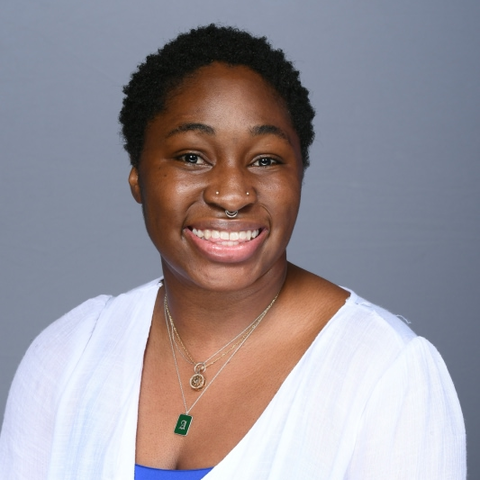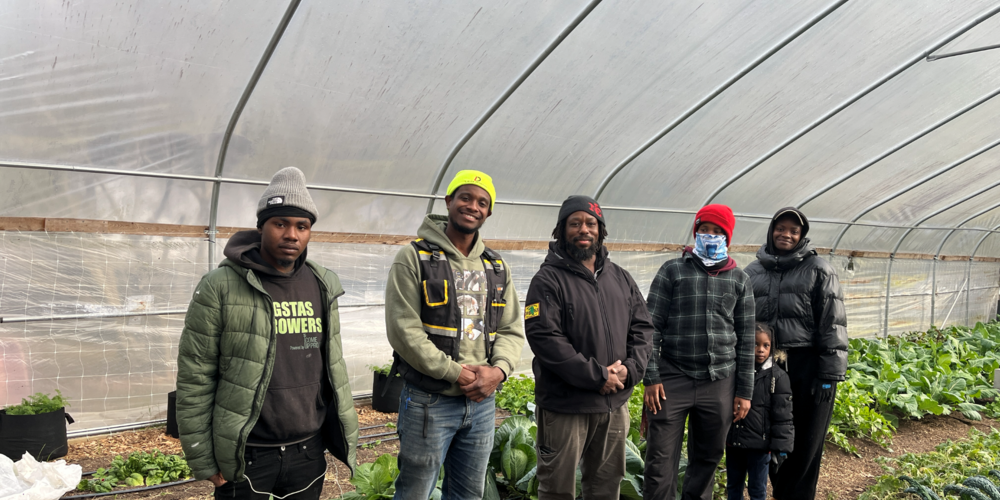
Caption
G2G students and staff (from left to right) Jacario Wilson, Pele Ellis, Tarik Livingstone, Bridget Darby and Vasha McKinney pause for a photo at Phoenix Gardens in Lawrenceville, Ga.
Credit: Amanda Andrews / GPB News
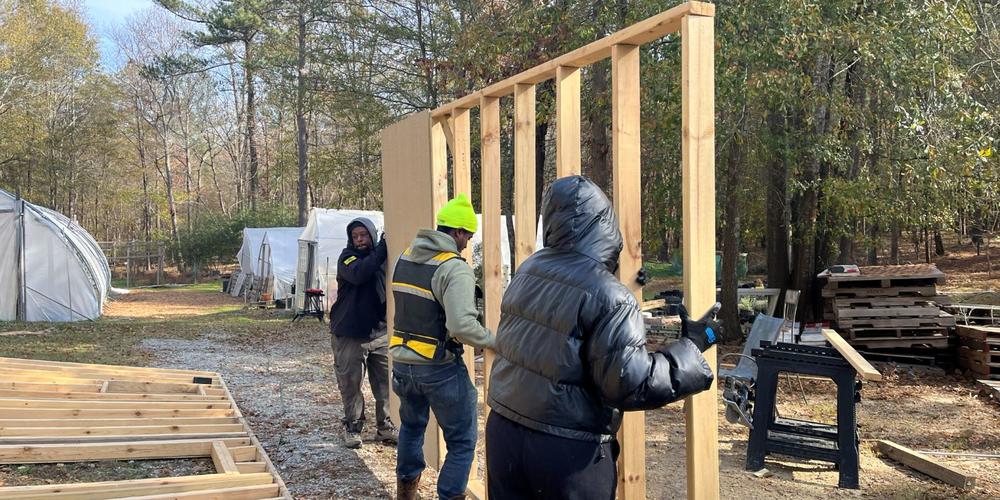
Caption
Gangstas to Growers participants help build a shed for workshops at Phoenix Gardens.
Credit: Amanda Andrews / GPB News
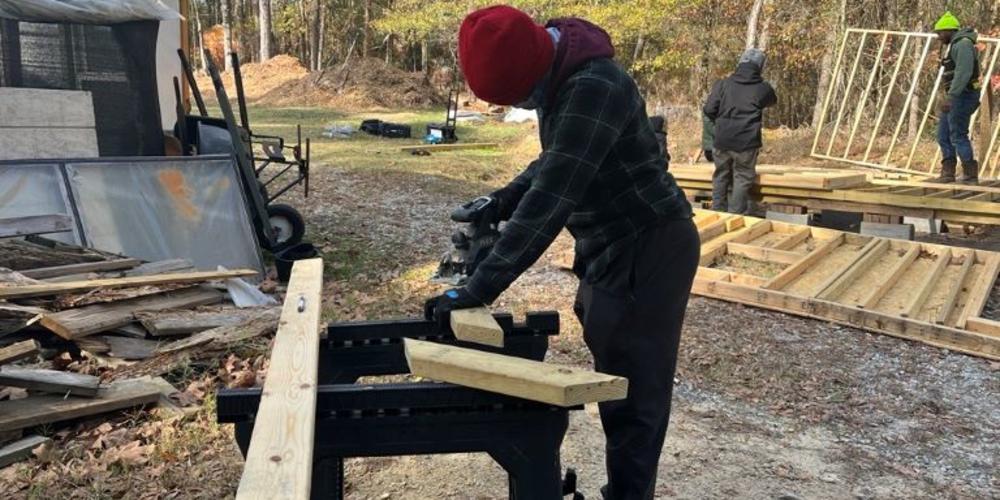
Caption
G2G student Bridget Darby saws wood supports for a shed building project.
Credit: Amanda Andrews / GPB News
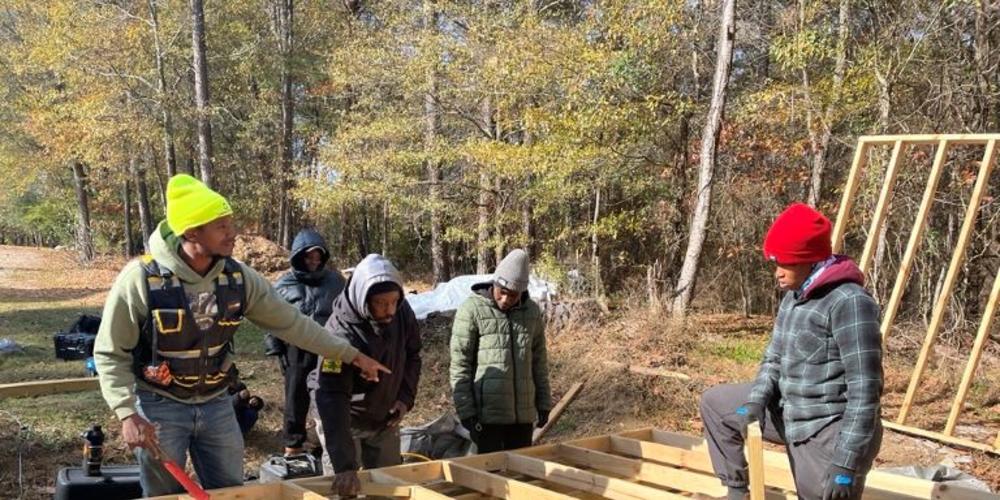
Caption
G2G farming lead Pele Ellis directs students in building a shed.
Credit: Amanda Andrews / GPB News





